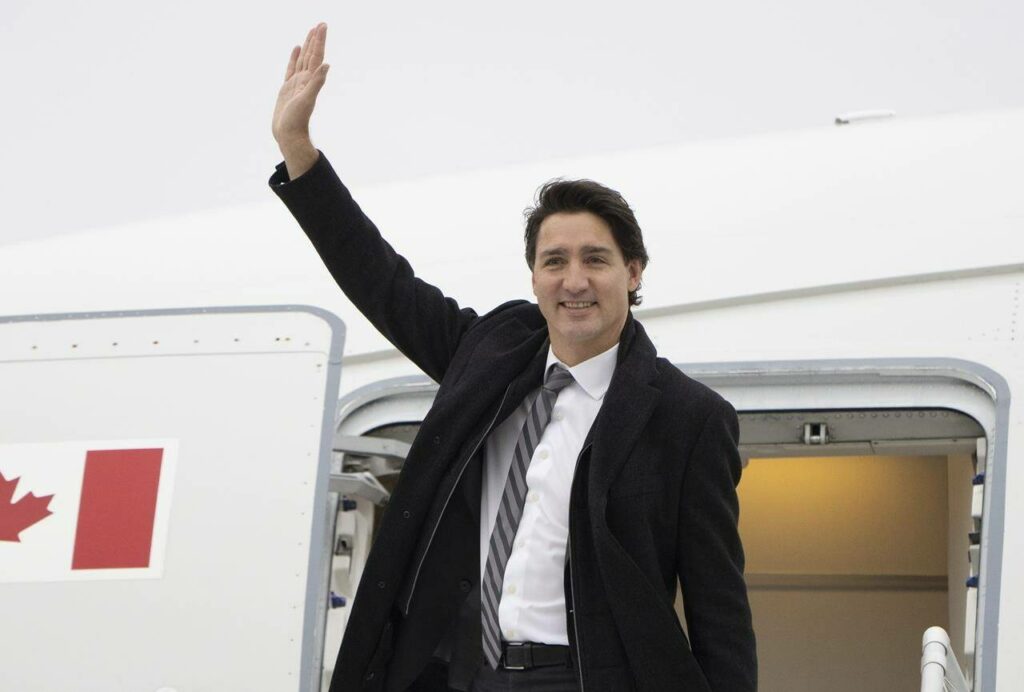Canada’s Prime Minister Justin Trudeau appears to be on some sort of mission to confirm everyone’s suspicion that he doesn’t know what he is doing. Quite literally. Faced with recent criticism of the burden of our rising carbon tax, Trudeau “touted his carbon tax as the alternative to ‘the heavy hand of (government) regulations’” and to “‘subsidies and rewards’ for companies” doing what the state wants. This from the man who’s announced a long list of climate-related regulations as well as giving tens of billions in, what’s that word, oh yeah, “subsidies” to manufacturers of EV batteries and every other so-called green technology. As the Toronto Sun asks scornfully, “Has Trudeau not read his climate change plan?”
As John Ivison observed, Trudeau denounced regulations, subsidies and that “heavy hand” and added:
“I prefer a cleaner solution, a market-based solution and that is, if you’re behaving in a way that causes pollution, you should pay”.
Indeed economists, including ones who buy the basic climate alarm like William Nordhaus, have long said that if you want to reduce greenhouse gas emissions carbon taxes are a more efficient way of doing so than regulations. But only, and it is not a trivial point, if they are a substitute for regulation instead of a supplement to it.
Trudeau by contrast has given us the worst of both worlds by combining taxes with regulations. And by combining fanaticism with incompetence. The Canadian government doesn’t actually even try to measure how much the vaunted carbon tax actually reduces greenhouse gas emissions. Instead it just guesses that, what the heck, it might be a third of the reductions it wishes would happen by 2030 but won’t.
As the Sun editorial observes, with math skills that may well exceed the Prime Minister’s:
“That means at least two-thirds of the cuts are supposed to come from things other than the carbon tax.”
Such as what? Well, here’s where their economic skills exceed his, because these other things include “the government’s ‘clean fuel’ and ‘clean electricity’ regulations.” Also known as the “heavy hand” of government, what’s that word, oh yeah, “regulations”.
As is typical in a modern government, these proliferate wildly in number and length, including the “Regulatory Framework for an Oil and Gas Sector Greenhouse Gas Emissions Cap”, also presumably a set of regulations, and the “Canada’s Electric Vehicle Availability Standard.”
The Trudeau cabinet are not noted for their mental clarity. Environment Minister Steven Guilbeault recently ripped into all the premiers for begging him and the Prime Minister not to raise carbon taxes further because of the burden they place on the economy, claiming they knew not whereof they spoke:
“eight out of 10 Canadians who pay carbon pricing receive more money than they pay back. So what they want us to do is to get rid of the most effective measure to fight climate change, and they want to take money away from people at a time of affordability that makes no sense.”
Incorrect. What makes no sense is thinking that putting a price on “pollution”, aka energy, but giving people all the money back and more besides will cause people to use less of it.
One does hesitate to waste good argument on unresisting imbecility. But a crucial component of the affordability crisis is the price of the fuel necessary to power cars and trucks and heat homes. And if you fight the affordability crisis by giving them more money to buy fuel, you abandon the crucial causal process that justifies the tax in the first place, namely forcing them to use less fuel by making it less affordable.
As Kris Sims of the Canadian Taxpayers’ Federation exclaimed irritably:
“If we accept your premise, it prompts the question: If the majority of Canadians will get more money back than they pay into the carbon tax, or will not be out any money at all, then: Why charge a carbon tax at all? What’s the purpose?”
It is not rocket science. And thank goodness or we would never have reached the moon. Mind you, if you’re going to raise the tax with one hand and undercut it with the other, there’s some practical logic to relying primarily on non-market mechanisms. But not to do so while claiming you aren’t.



First of all,the carbon tax is usually hidden into the cost of any product or service,which required fossil fuel to grow,manufacture,transport,etc.
That's virtually everything!Second,the Parliamentary budget Office(PBO) has repeatedly said that most families pay more in carbon tax than they
receive in rebates.Third,since Trudeau's so-called "Clean Fuel Initiative" was introduced last July,the gas mileage of my car has dropped about 10%,
with no changes in driving habits on my part.My car's dashboard computer verifies that.That means I have to purchase more fuel to drive the same
distance.Most Canadians do not support the carbon tax